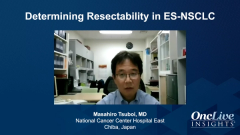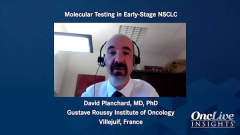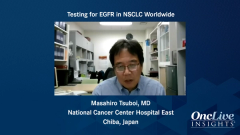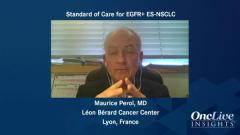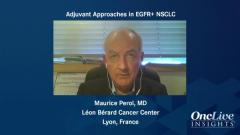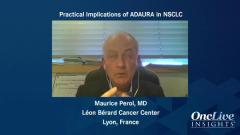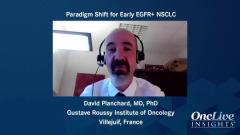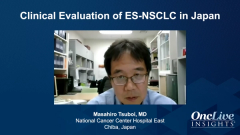
Determining Resectability in ES-NSCLC
Episodes in this series

Masahiro Tsuboi, MD: The most critical issue is whether complete resectability is possible or not. However, the final decision may be based on the surgical findings. In stage II, IIIA disease, there may be a difference in the experience of the surgeon. Clinical issues point to resectability. Resectability of early stage lung cancer, especially II or IIIA disease, is determined by a multidisciplinary team-based discussion based on the findings, lymph nodes, and metastases. For example, the single or multistation variety. Personally, I worry about indications of surgery when there are multiple and discrete lymph nodes and metastases. In most cases, discrete N2 disease is resectable. Complete resection does not always get to a cure, especially in stage II and IIIA disease.
Both stage IIA and IIB patients with postoperative complications and the very elderly population—over 80 years of age—to be referred to the medical oncologist for adjuvant treatment. There is high risk for recurrence in the poorly differentiated tumors, including lung neuroendocrine tumors and vascular or lymph node invasions, tumors more than 4 cm in size, visceral pleural invasion, and known lymph node metastasis. When we have such findings, we hand over to the medical oncologist to do adjuvant chemotherapy after surgery. These independent factors may not be indicated and may be considered when the timing of treatment is adjuvant. Tumor size less than 4 cm depends on the nodal involvement among stage II disease. There is no difference in strategy between stage IIA and IIB disease. Japanese guidelines recommend platinum-based chemotherapy in this population.
Transcript Edited for Clarity


